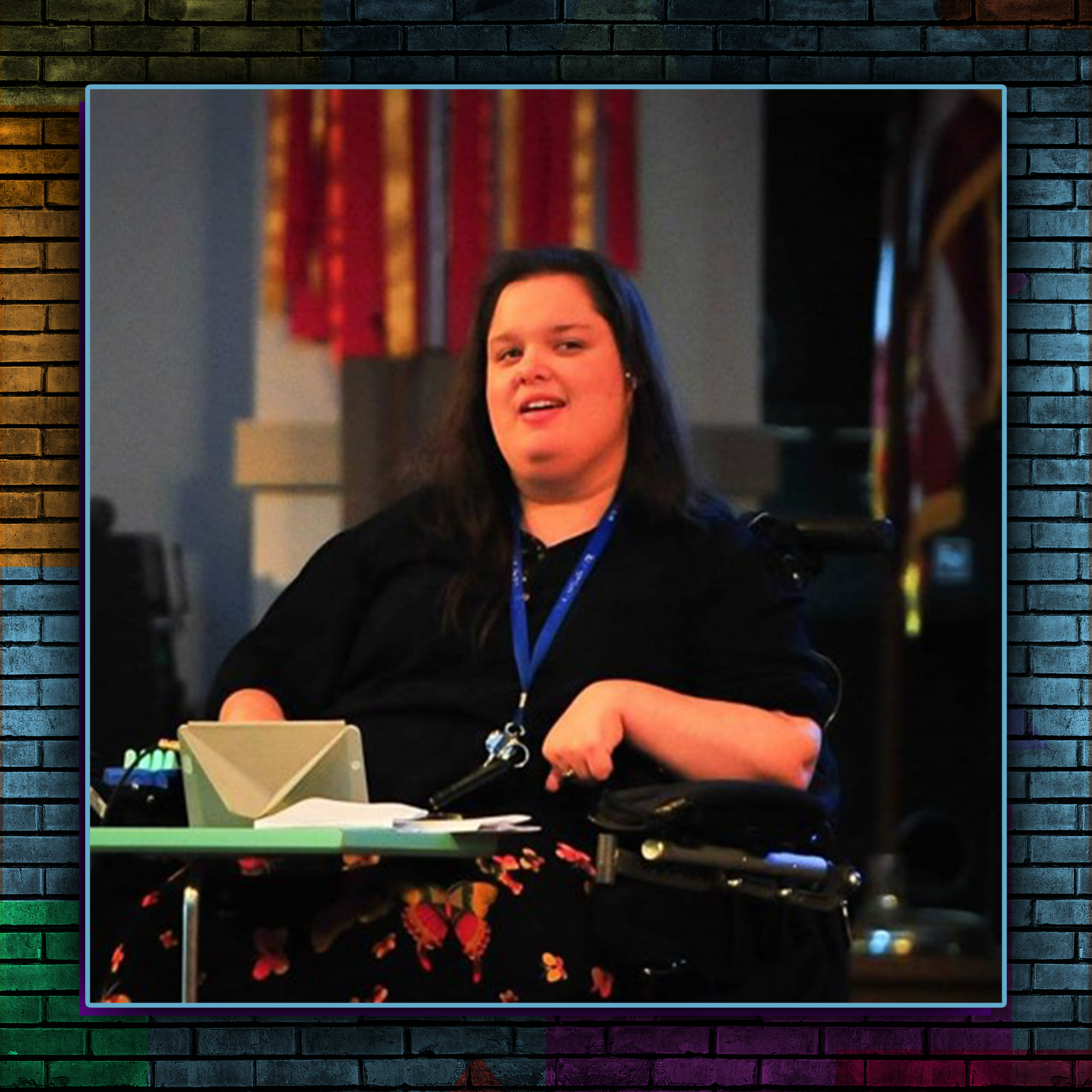Give thanks to the LORD, for he is good;
his love endures forever[1].
Okay, God. I believe that you are good, and I’m trying to believe that you are love, but this whole forever business? If this year’s taught me anything, it’s that nothing I thought was stable is forever. Maybe that’s what Lent is about. It’s about teaching us what is good, retraining us what it means to love. Are you showing me how to take the long view? That the type of love you show is about enduring hard things? Quarantine. Systematic oppression. Ableism. Isolation. Misunderstanding. Having to prove ourselves over and over again. All the paperwork and tracking. How do we thank you for that? How is it good? How is it shaping us, and refining us? How is it not punishment or something you ordained, but something you are using? These are all things I have been wrestling with during Lent and beyond. Things you put on my heart to talk with you about. If anything else, wrestling with these questions has deepened my relationship with you. In the past few months, you have turned me into a psalmist. With my pleading letters to Ableism to stop wreaking havoc on my life. On our lives.
19 Open for me the gates of the righteous;
I will enter and give thanks to the Lord.
20 This is the gate of the Lord
through which the righteous may enter.
21 I will give you thanks, for you answered me;
you have become my salvation.
Open the gates of the righteous.[2] Lord, help my unbelief.[3] But if the church is to be your hands and feet[4], who decides who the righteous includes? Some of your law would say that it does not include me because of my disability, some would also say I am excluded from the priesthood (even of all believers) because I am a woman.[5] Can I still preach if I do not stand? If the spirit is willing but the flesh is weak? Can I still lead if I admit I need assistance from those under my care? If I am open about the fact that I do not have all the answers, that I do fold under stress?[6] Will you answer us if we cannot physically knock? If we do not verbally ask? If your people or your buildings have said no so frequently that we can only cry out with our hearts, even as our conscious minds say no, in order to protect ourselves?[7] Will you answer us, and become our salvation? Even if we are too angry or hurt to say thank you for the things we do not acknowledge you give us?
I am glad that you allow me to thank you by helping others even if I don’t always outwardly acknowledge your role in what I’m doing or why I am doing it. Sometimes people are more likely to receive without putting up walls if I don’t mention why.
Unfortunately, the system Jesus left behind to continue his work is still filled with flawed humans who make a lot of mistakes in your name. After all, Palm Sunday is the remembrance of the celebration a lot of people of faith had right before they turned around and did a lot of damage to another changemaker with disabilities.[8] I’m saddened that we still haven’t learned many things you were trying to teach thousands of years ago. I think the reason why it’s so hard to sing Hosanna right now, especially right now, is because I want to be done already. I want to live in this more perfect world that you promised us. It’s not fair. Singing Hosanna because it’s already done, because I know you’ve already planned it, and you have it executed. I’m only human, I can’t see the end. It’s frustrating knowing it’s not supposed to be this way. People aren’t supposed to go without care, we aren’t supposed to die alone or have to prove our worthiness to be treated as humans. People with disabilities aren’t supposed to be seen as strains on resources, or permanently fight for crisis care. And yet we are. We are here, and you are here, but not yet here in the flesh. How do we claim salvation, as we await your return? How do we claim our inheritance, in celebration when there is still so much work to be done?
22 The stone the builders rejected
has become the cornerstone;
23 the Lord has done this,
and it is marvelous in our eyes.
24 The Lord has done it this very day;
let us rejoice today and be glad.
Lent, and this Lent in particular, is a time to reflect on what separates us from you. To acknowledge what works you are doing in us. To refocus on what unites us, and how our choices and mindsets separate us from each other. This year we had the opportunity to reset and be thankful for smaller, simpler things. We have learned what is important, and where our gifts to each other are most useful. I pray that you help us continue to turn our systems around. Continue to teach us which is the cornerstone and show us what you are doing this very day.[9] So that we may learn how to rejoice in every day, whether we can see Jesus coming or not. We sing Hosanna, and ask to be saved, just as we are thankful that it is already done as we sing it.
11 As they approached Jerusalem and came to Bethphage and Bethany at the Mount of Olives, Jesus sent two of his disciples, 2 saying to them, “Go to the village ahead of you, and just as you enter it, you will find a colt tied there, which no one has ever ridden. Untie it and bring it here. 3 If anyone asks you, ‘Why are you doing this?’ say, ‘The Lord needs it and will send it back here shortly.’”
Jesus uses everyday things. Mended things. Prodigal sons who return, old wineskins, water, wine, bread, cloaks and donkeys and colts. A king so poor these things were borrowed.[10] Broken people made new and lifted up, as David was.[11] Exiles returned.[12] People who come back to their faith. Jesus was allowed to mourn, even as he knew Lazarus would return at his own words.[13]
We can sing Hosanna, save us, and know that is also a praise that we will put in the work to reorder the kingdom with our own skills. We can be used to save each other. Things will get better. We will come out of the dark. We will be able to fellowship again. We will get what we need, even if we have to borrow the things we need, even our strength and courage. The kingdom of David will come.[14] Because Easter is coming. And we are Easter people. And whether we invoke in our remembrance and celebrations next week, or whether we acknowledge it when the pandemic ends, or when Jesus returns, give thanks to the Lord for he is good his love endures forever and true. And we will be able to say Christ is risen indeed. Amen
Questions:
How is the Lord good in these times?
What does the word forever or endurance mean in times of great change?
How do you determine who is righteous, and what if anything does it have to do with how you see disability? Is it different for yourself than it is for others? If it is different, why is that? How does God determine who is righteous? Is it different than yours?
What stones need to be reordered in the systems in your life? Are there any in the Church? How do you think God is going to use you to do that?
How is God reteaching you to sing Hosanna? What are you praising for, or what are you thankful for in your life right now?
How are you letting others borrow your resources to celebrate God or to get what they need? How are you borrowing from others and asking for what you need?
How are you communicating this? How can we give thanks to God that we are able to share resources and lean on each other as we work to reorder systems and build the Kingdom?
[1] Psalm 118:1
[2] Psalm 118:19
[3] Mark 9:24
[4] Paul’s letter to the Corinthians
[5] Deuteronomy and Leviticus barred those with physical differences from the inner Temple and the priesthood, as well as specific admonitions about roles women could serve in the church
[6] Some churches still believe that church leaders should be seen as strong and unbreakable, just as God is perceived to be
[7] Some people with disabilities and others have been barred from entering church buildings for identity, behavioral or health reasons, which could be extended because of COVID-19 restrictions, and while they may still believe, may also have a hard time receiving Jesus the person into their hearts because the church has not been accepting of them, so they may not think they deserve.
[8] Many scholars with disabilities believe that Jesus took on and redeemed disability through the crucifixion. The same people that praised Jesus by singing Hosanna called for his crucifixion.
[9] Psalm 118:22-24
[10] Mark 11:3
[11] 2 Samuel 7:8
[12] Ezra 1:1-4:24
[13] John 11:35
[14] Mark 11:9

Amy Litzinger is a lifelong traveler with Jesus, which means using her voice and her art to advocate with marginalized people to thrive, especially her peers with disabilities. In addition to her paid work as a non-profit policy specialist, she strives to help the community of faith become more inclusive by infusing a theology of disability into congregational culture and by including people with disabilities in discussions of access. Amy has grown up in the UMC, receiving her BA in Religion from Southwestern University in 2010 and her MA in Theological Studies from Austin Presbyterian Theological Seminary in 2015. She has been a certified instructor for DanceAbility International since 2015.



Unbound Social